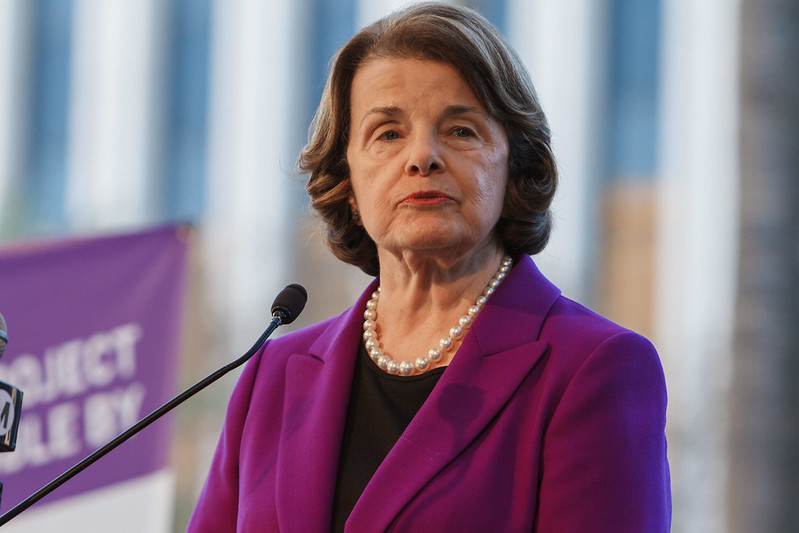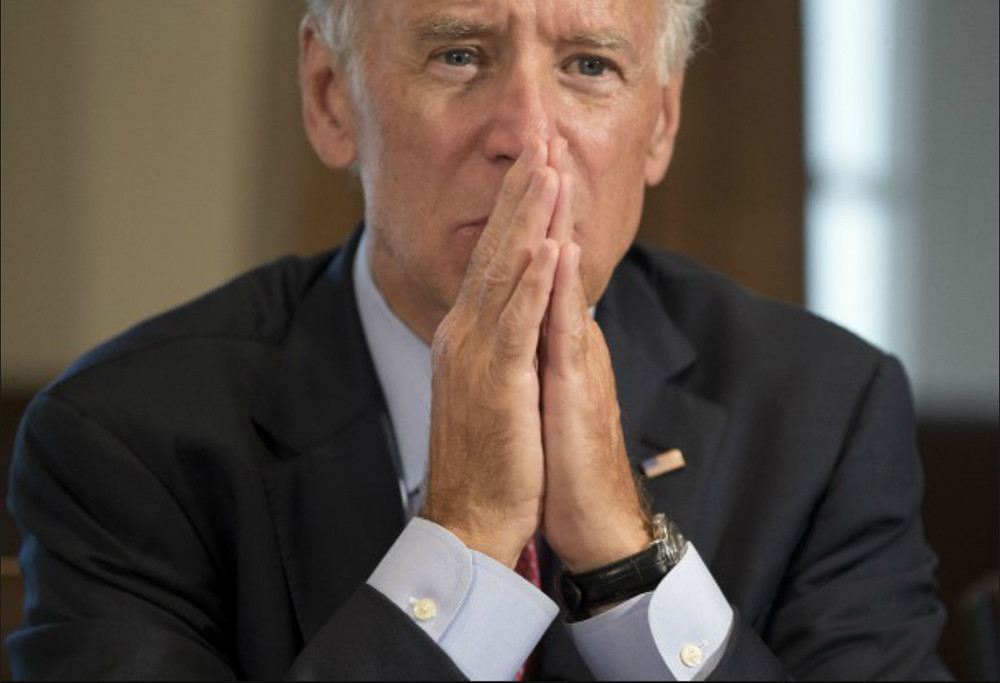It’s been said that stepping down from power is one of the most difficult things a person can do. There’s something about the idea of control that keeps us clinging on, like death’s grip, even when it’s obvious that we’re incapable of performing our duties.
The late Senator Diane Feinstein of California was the perfect example of that. At age 89, she contracted shingles, which led to brain inflammation and facial paralysis. After her hospitalization, she had to be wheeled into Congress because she couldn’t walk, and she could barely talk. She had no business occupying her seat, but she refused to step down until the very last minute.
We’ve seen similar issues with Sen. Mitch McConnell who came under intense scrutiny after freezing up twice in public, a sign of a serious medical condition. He brushed the incident off and postponed his retirement another year. He’s still in office.
Both senators are part of what many are calling a gerontocracy. It’s an aging class that has held onto power in the nation for decades. The result has been predictable. They push back on policy changes, ignore the tide of public opinion, and fight to maintain the status quo. Feinstein, for example, was a Democrat, but she was said to be more supportive of Trump’s policies than anyone else in her party at the time. She refused to support the Green New Deal, and she was widely criticized throughout her home state for being too conservative.

The problem of age is most pressing when it comes to the presidency. The president must be of sound mind, ready to tackle a crisis at any moment. They’re commander-in-chief of the most powerful military in the world. The red button is always within their reach, and their actions have a dramatic effect on the lives of hundreds of millions of people.
That’s why, regardless of where you stand on the political spectrum, you have to take a moment and consider the ramifications of keeping Joe Biden in office. Many people reading this do agree with his policies. He’s objectively better than Donald Trump, who still represents an existential threat to our democratic process. But people are starting to worry about his mental state, and those concerns cannot be ignored.
What Are People Saying About Biden’s Health?
Most of the rumors about Biden’s health have been reported under the condition of anonymity, but they are worrisome. According to The Mirror, he has difficulty remembering names, even those of long-time friends and donors. This has forced his wife Jill to stay by his side and urge him on through social gatherings. He stutters and stumbles through his speeches. He’s misspoken many times during public appearances, and his symptoms worsen when he’s tired. For that reason, the White House has instituted a daily naptime to keep him alert enough to perform his duties.
Biden has also spoken about his need to conform to an 8 p.m. bedtime. That might sound excessive, but it’s not unusual for a president. George W. Bush famously went to bed by 9. Heads of state do what they can to maintain a balance, preserve their private lives, and avoid burnout. Anything else could be a serious detriment to their mental and physical fitness.
It’s important to avoid drawing conclusions. We’re not seeing clear-cut signs of dementia or any other condition brought on by age. Many seniors have similar issues even without a diagnosis. If we want to get to the truth, we have to straddle the fence and carefully collect the facts. Biden could be sick, but he might not be. We don’t have enough information to decide either way.
The Debate and the Aftermath
The topic of Biden’s health took center stage after his debate performance on June 27. His voice was hoarse. He seemed weak and slow, and he had trouble framing his thoughts. Donald Trump seized on the opportunity. He employed a tactic called the Gish gallop, throwing out one lie after another, knowing full well that the president wouldn’t be able to keep up.
Biden went over the concerns about his age at a rally in North Carolina the next day. He seemed fully recovered. He was sharp-witted, and his voice was just as strong as ever. He told the crowd, “I don’t walk as easy as I used to. I don’t speak as smoothly as I used to. I don’t debate as well as I used to. But I know what I do know: I know how to tell the truth.”
It was a sound argument. When it comes to honesty and morality, Biden clearly wins out. But post-debate polling was bleak, showing Trump in a much stronger position to win the campaign.
The ABC Interview
Biden was hoping to turn things around in an ABC interview with George Stephanopoulos a week later. But Stephanopoulos attacked him from every angle, asking about his health, the frequency of his checkups, and his sinking poll numbers. Biden did his best to reassure the public and deflect the most difficult questions, but he wasn’t very convincing.
Stephanopoulos made a compelling case. He said that the last election was too close for comfort, and Biden’s current poll numbers are much worse now than they were in 2020. If there was any chance that Trump could win the election, then it was Biden’s moral obligation to step down for the good of the country. Biden refused, saying that he wouldn’t quit unless “the Lord almighty came down.”
Why Is Biden Refusing to Step Down?
Everyone seems to have a different take on why Biden is clinging to power. Experts have weighed in, analyzing his body language along with his physical and mental health. But you can’t diagnose a stranger or read their mind just by watching them on YouTube. It’s better to take a more simplistic approach and judge the president based on his words.
During the ABC interview, Biden focused on his achievements. Nearly every time he was challenged, he brandished another accomplishment, citing everything from diplomacy to legislation. He also made a point to emphasize that there was more work to be done, and that is key to understanding his reasoning.
American presidents are the ultimate overachievers, and overachievers do not stop. They scrape and claw their way up the ladder, doing whatever it takes to stay motivated.
After 81 years of running on that treadmill, how can he give up? It’s not in his blood. He is a fighter, and he has accomplished quite a bit during his time in office. In his mind, he probably doesn’t see a reason to resign.
The American public and the Democratic party disagree. Cries for him to step down are growing louder every day, and time is running out to salvage the race.




